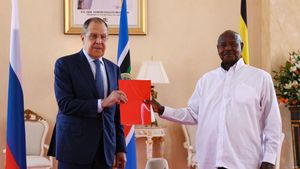The lead-up to the 2024 U.S. general election has seen soaring concerns over the impact of misinformation, particularly as social media platforms become focal points for dubious claims. Recent analysis shows how content shared by influential figures, most prominently Elon Musk, has helped to distort the narrative around voting, candidate legitimacy, and electoral processes.
According to recent reports from watchdog organizations, misleading posts by Musk on the platform X, formerly known as Twitter, attracted nearly 1.2 billion views earlier this year. These posts spewed false narratives, including claims about election fraud and allegations of Democrats attempting to import voters through illegal immigration. The fact-checking community has firmly debunked these assertions; nonetheless, their reach remains vast.
Musk's considerable online presence—boasting over 193 million followers—amplifies his influence, raising alarms about the potential consequences for public discourse. Imran Ahmed, the chief executive of the Center for Countering Digital Hate, criticized Musk's usage of the platform and called for accountability, asserting, "Elon Musk is abusing his privileged position as owner of a politically influential social media platform to sow disinformation..." This sentiment echoes among various advocacy groups pushing for responsible management of misleading content.
The broader fabric of social media plays its part as well. Research indicates X has become somewhat of a haven for misinformation. The platform has stripped down several safety and trust protocols, which previously monitored and mitigated the spread of harmful content. Advocates suggest this erosion of safeguards could lead to real-world ramifications, including political violence and voter intimidation.
This phenomenon isn't exclusive to X or to Musk. Various platforms face similar challenges as the election approaches. Reports highlight the looming threats of voter misinformation manifesting through fake content disguised as fact, impersonations of candidates, and misleading videos. For voters, it’s becoming increasingly convoluted to sift through what's real and what's fabricated.
To combat these challenges, the Illinois Attorney General's office recently released its own voter misinformation guide aimed at protecting residents from scams and misleading electoral information. The guide outlines how voters can recognize deceptive content and encourages them to consult their local election boards for verification. Kwame Raoul, Illinois Attorney General, stated, "The right to vote is one of the most fundamental rights we have as Americans, and voters deserve to have accurate information about the important choices they make on their ballots."
A significant element of concern lies within the candidates contesting elected positions. More than half of candidates involved experienced intimidation or harassment leading up to the elections, according to recent findings from the Electoral Commission. Out of those surveyed, one-third reported directly feeling unsafe, and serious threats plagued many others. This alarming trend underlines the urgent need for effective safeguards for candidates.
The Electoral Commission's report on the 2024 general election details how the threats candidates faced extended beyond verbal harassment. Physical intimidation tactics included slashed tires and targeted abuse aimed at candidates' families. The unsafe atmosphere is discouraging potential candidates from stepping forward, significantly impacting the diversity within elections. Notably, female and minority candidates reported higher instances of serious abuse compared to their male counterparts, with women reportedly facing serious abuse at twice the rate of men.
The rise of online abuse is particularly troubling, contributing to the intimidation felt by candidates. Two-thirds of candidates who responded to the Electoral Commission's survey indicated they had encountered some form of online harassment. With the digital space being increasingly weaponized against candidates, experts doggedly advocate for the introduction of reinforced online protections.
There's also substantial worry about the impression these alarming trends leave on future elections. The toll of harassment is evident, with 66% of female candidates saying they would not campaign alone for fear of what might happen. This acute sense of vulnerability compromises the democratic process, lending credence to concerns around equitable representation.
The path forward remains unclear. Nevertheless, various stakeholders—including regulators and advocacy groups—are calling for stricter penalties for electoral-related offenses and tighter membership rules targeting political parties. Election committees are also considering the introduction of secure campaigning zones aimed at protecting candidates during their campaigns. Vijay Rangarajan, chief executive of the Electoral Commission, highlighted the urgency, saying, "The level of harassment and intimidation faced by candidates is particularly concerning and requires urgent and coordinated action."
The stakes are higher than ever, and the ramifications of misinformation and voter intimidation extend beyond the individual voter or candidate. It fundamentally challenges the integrity of the electoral process and the principles of democracy itself. The 2024 election weaves together both the present-day urgency of curtailing misinformation and the historical struggle for justice and equal representation within the electoral system. If effective measures aren't implemented swiftly, the ripples of this election might resonate well beyond the final tally of votes.



